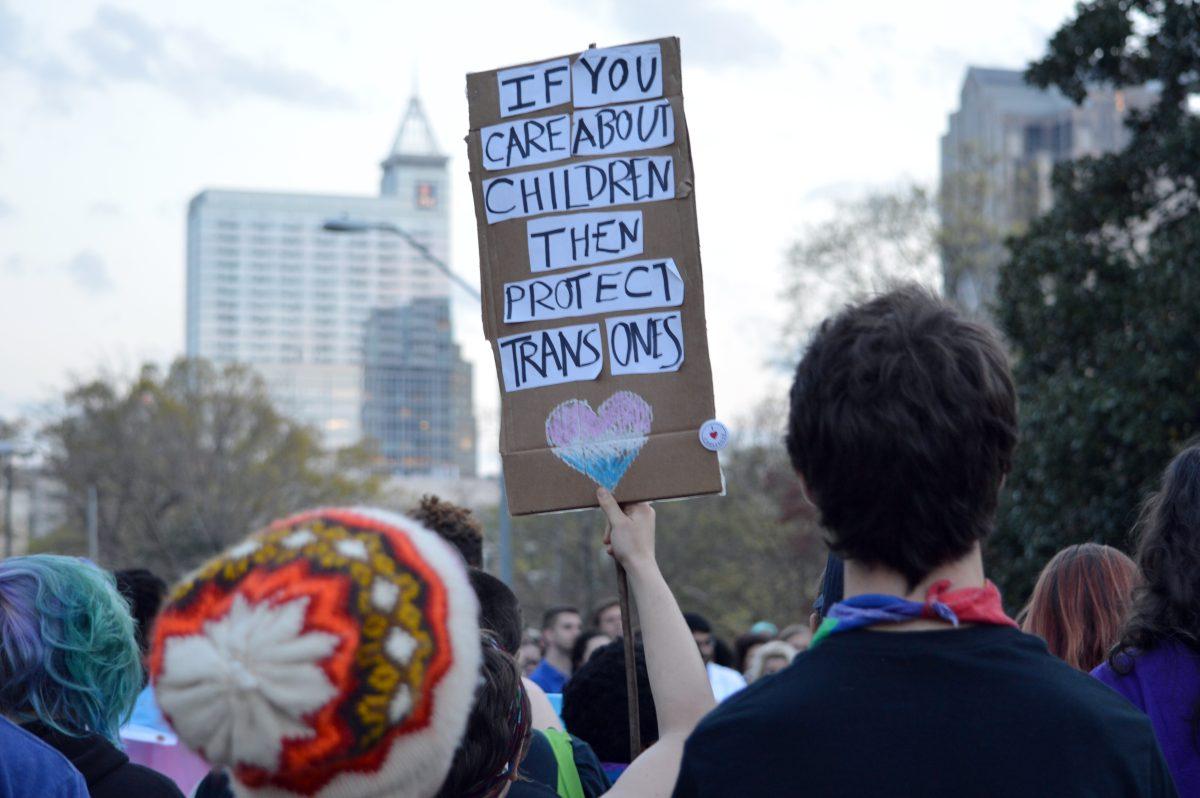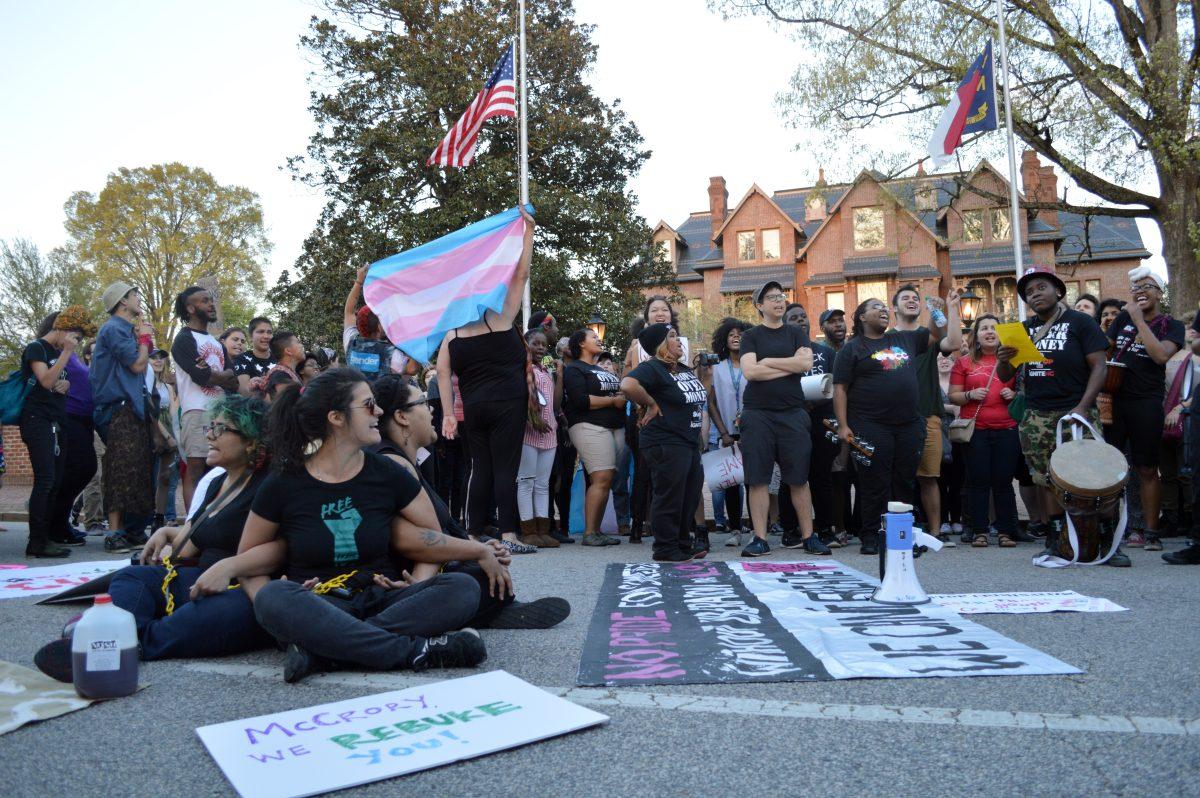Three members of the LGBT community, two transgender people and a lesbian law school professor wasted little time challenging House Bill 2. The three filed a federal lawsuit Monday to challenge the law that blocks local governments from passing anti-discrimination rules. It also requires transgender people to use bathrooms assigned to their biological sex.
Defendants include Gov. Pat McCrory and the UNC System where one plaintiff works and another attends college. The 17 campuses of the UNC System are required to comply with the law.
Attorney General Roy Cooper, a Democrat who has criticized the law and wants it repealed, will be another defendant. He is McCrory’s opponent in the gubernatorial election this fall. Cooper will be a defendant because his office defends the state in litigation.
Two of the plaintiffs, a UNC-Chapel Hill employee Joaquin Carcano of Carrboro and Payton Grey McGarry, a student at UNC-Greensboro, are trans males. However, this change is not reflected on their birth certificates. The third plaintiff is a lesbian who is an associate dean and professor at the North Carolina Central University School of Law.
The lawsuit claims that Carcano used a designated men’s restroom at work, and McGarry used a campus locker room without any problems before the law was passed.
According to the lawsuit, if the plaintiffs were to use other restrooms, it could cause anxiety and fear. If McGarry were “to use the women’s restroom [it] would also cause substantial harm to his mental health and well-being. It would also force him to disclose to others the fact that he is transgender, which itself could lead to violence and harassment.”
GOP lawmakers wanted to overturn the Charlotte anti-discrimination ordinance. HB2 prevents all cities and counties from extending protections encompassing sexual orientation and gender identity in hiring and employment practices, and in public accommodations such as restaurants, stores and schools.
“By singling out LGBT people for disfavored treatment and explicitly writing discrimination against transgender people into state law, [the new law] violates the most basic guarantees of equal treatment and the U.S. Constitution,” the lawsuit reads.
Monday, a news conference with The American Civil Liberties Union, Lambda Legal and Equality North Carolina will be held in Raleigh to discuss lawsuit details.
Despite intense criticism from companies and individuals, McCrory continues to defend the bill.
“I’m proud of us protecting the privacy rights of individuals and not putting burdensome regulations on business and letting them make the decision, not government make the decision,” McCrory said in a statement.
Monday, Republican Gov. Nathan Deal announced he would veto a proposed “religious liberty” bill in Georgia. The law would have given faith-based services the right to turn away gay, lesbian and transgender people.
However, McCrory argued that the two bills were different things.
In a statement, McCrory said, “I think the media is connecting the two when there’s actually no connection whatsoever. They’re two different issues, totally. I know you’re trying to connect them, but there is no connection between the two.”
According to the National Conference on State Legislatures, North Carolina is the first state to require public school and university students to use bathrooms that match their birth certificates.
Supporters of the new law argue that it protects people from having to share bathrooms with people who make them feel unsafe. However, advocates for LGBT rights claim that the North Carolina legislation demonized them with bogus claims about bathroom risks.
Salma Mahud Mirza, Jade Meadow Brooks, and Jessica Nicole Jude are 3 of 5 people who had chained themselves together in front of the Governor's Mansion to protest the passage of HB2 on Thursday, March 24, 2016. Passing HB2 prevents local governments from passing anti-discrimination rules -- significantly impacting those that identify as transgender and non-gender-conforming peoples. Roughly 700 people were in attendance for the protest which lasted 3 hours before being shut down by Raleigh police.









